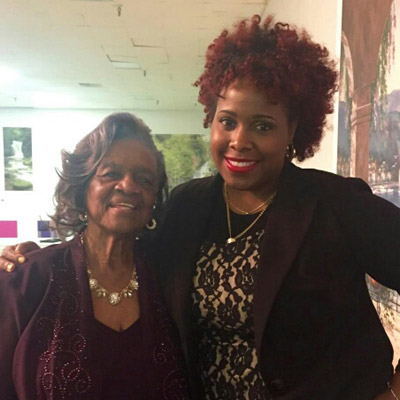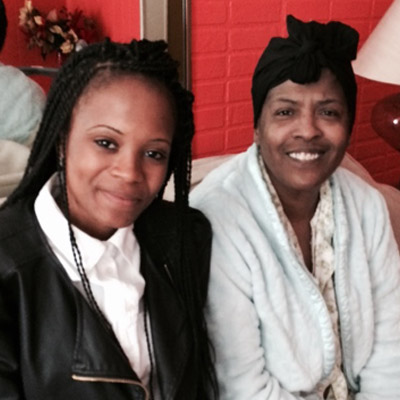Teresa Pucheta had lived alone for years, until a friend with health problems needed a place to stay. She shared her house with him until he died of cancer, she says. "Then I saw the house was kind of lonely. Another friend said: 'There's a place you can get a roommate.'" That's when Pucheta first found out about a house-sharing program at St. Ambrose Housing Aid Center, a NeighborWorks network organization in Baltimore, Maryland. The program screens renters and home providers and allows them to make their own matches.
It started at St. Ambrose in the 1980s, mostly with widowers who wanted to stay in their communities after a spouse had died, says Karen Heyward-West, who has been head of the program for six years. "It's a creative solution to our affordable housing issues, especially in major cities," she says.
Over the years, the program has grown to include different types of people on small, fixed incomes, older residents, single parents and people who just don't want to live alone. It also includes people looking for second chances, such as people in recovery after substance abuse who are starting over. "Always, the common denominator is: 'I need a place to call home, a place to put my key in the door,'" Heyward-West says.
Steve Antlitz falls into the starting-over category. Before renting a room, he says, he lived at Christopher Place, transitional housing for people recovering from addiction. Before that, he'd been homeless.
"I'm kind of taking baby steps," he says. "I'm content renting a room. I'm able to save money this way. I don't own a car. I've been able to obtain a credit card and get my credit score up."
He says he'd been sober for two years before applying to the program. Now he's been sober another two. He works and walks. "I don't need a lot," he says. "It's worked out well."
The program is not for every homeowner. And the matches don't always work. But the organization currently has about 280 matches in the program. According to Heyward-West,"The homeowner and the home sharer have to think about: Can I actually live with someone and call this a home for myself?"
 When it does work, Heyward-West says, the benefits go both ways. She lists the following as key benefits from home-sharing:
When it does work, Heyward-West says, the benefits go both ways. She lists the following as key benefits from home-sharing:
- Socialization and companionship
- Affordability for both sides
- Improvement in a person's health — that includes their outlook on life and their mental health.
Heyward-West says one match has continued for 29 years. "I'm so proud of that one," she says. Another match she's proud of? Two side-by-side homes of young people between the ages of 18 and 24. Most of them moved on to their own homes in March, once they received their housing vouchers But while they shared a home, they ate meals together and solved problems together. "They formed sense of family," Heward-West says. "They still keep in touch. When you speak to one, it's very common for them to say, 'I'm on the line with …' or 'I'm checking in on …'"
Heyward West says challenges occur if it's not a good fit. They let the homeowners make their own matches, once the organization does a background check and verifies income. The participants also fill out questionnaires — how late they stay up, whether they smoke or not. When both sides agree on a potential match, there is an introduction, though with COVID-19, the process is changing.
"We ask new home providers to take us on a video visit. For some, that's fine. But for some, that's going to be a challenge, because they don't all have smart phones. Especially seniors. We have to rely on pictures and trust until our world changes, but we have to be safe for ourselves and for our clients."
According to this year's NeighborWorks National Housing & Financial Capability Survey, released in July, one in ten people are sharing homes, many in less formal programs than the one at St. Ambrose. Some live with friends or relatives. Others scan want ads for roommates. The number is higher among Blacks, Asians and Latinos at 18%, 17% and 12%, respectively, the survey shows.
Heyward-West says St. Ambrose began its program in 1988 after learning about other programs internationally. There are other home-sharing programs in the United States, she says, but they are the only registered program in the Maryland-Washington-Virginia area. For other network organizations considering a home-sharing program, she recommends checking with county jurisdictions to see how many unrelated people are allowed to live in a home and whether there are additional taxes or fees.
 Keisha, a homeowner who works in the public schools and asked that her name not be used, says she learned about the St. Ambrose program because of her background in human services.
Keisha, a homeowner who works in the public schools and asked that her name not be used, says she learned about the St. Ambrose program because of her background in human services. "I was a single woman with bills," she says. "I thought: 'I can help someone while they help me.'"
She says she'd thought about selling her house but having a tenant to help with expenses has led her to table the idea. "It's working out," she says.
Keisha, who lives on the Baltimore-Anne Arundel County line, was attracted to the program because of her desire to help others, she says, and because she had heard good things about St. Ambrose. "They're just kind and understanding," she says.
"The thing about the program is that you know the person you're looking at has been vetted, and they know you've been vetted," says Jon Reisfeld, who's been renting space in a home north of Baltimore for nearly three years. "That takes a lot of the anxiety out of the whole process. I think this is a great program."

